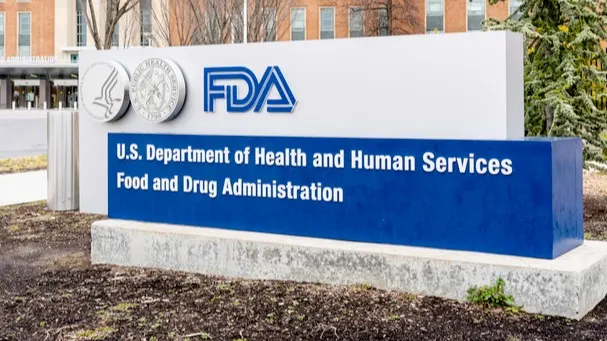
Overview
The FDA is setting new priorities designed to bring innovative healthcare products to market faster, though concerns about political interference at federal science agencies complicate the picture.
From streamlined drug approvals to healthier infant formula, the new administration outlines areas of interest, but scientists worry about political influence
The FDA shared its new priorities under the Trump administration in an opinion piece published this week, and the list includes faster review times, wider adoption of AI, healthier food for children, reduced “financial toxicity” and an increased use of big data.
In its article, published in the Journal of the American Medical Association (JAMA), FDA leaders Martin Makary, MD, and Vinay Prasad, MD, said their goal is to make the agency more “user-friendly” by partnering with the biopharma industry, providing guidance to startups, drug developers and investors.
“We will transition from a purely reactionary health care system to one that is proactive, intellectually curious about underlying causes, and financially aligned to promote health—not just treat sickness,” they wrote in their op-ed. “At the same time, the FDA must have the courage to create new pathways for therapeutic and device developers to respond to the current forest fire that is the worsening health of the US population. We will rapidly usher to market new products with transformational potential.”
Speeding FDA Reviews
One major initiative outlined in the op-ed involves speeding FDA reviews. Makary and Prasad noted the success of accelerated drug evaluations during the COVID-19 pandemic. They plan pilot programs permitting drug sponsors to submit key paperwork ahead of clinical trial completion.
“The time from when pivotal trial results are known to when decisions are made must be shortened,” they wrote. “This has implications for public welfare and will improve the risk-reward calculation of drug development.”
Another opening identified by the FDA involves using big data to monitor drug safety after products hit the market. Traditional randomized clinical trials and phase 4 post-marketing surveillance studies can be costly and slow, especially for rare diseases. By using large-scale health data, the FDA aims to quickly spot safety issues and confirm drug effectiveness in real-world settings.
‘Financial Toxicity Harms Patients’
Makary and Prasad also discussed the high price of drugs in the U.S. when compared to other developed nations, what they refer to as “the great American rip-off.”
While the FDA is barred from considering the price of medications when calculating the risk-benefit for patients, as European nations do, the pair suggests the agency can use its power to lower costs. They include speeding approvals of generic medications and streamlining the development process for biosimilars.
“Financial toxicity harms patients. No one took an oath to treat a patient and then ruin their life financially,” they wrote.
The authors also proposed significant changes to rules around infant formula. Current FDA rules, known as monographs, haven’t changed much since 1998. These guidelines prevent new ingredients and formulations from being approved, causing the U.S. to lag behind competitors like China and Europe, they claim. The FDA now wants to update these rules to encourage new developments.
Vital Research Disrupted by Cut Backs, Policy Changes
The vision for the agency’s future comes at a tumultuous time for scientists and the healthcare industry overall, as numerous policy changes, political fights, budget cutbacks and anti-immigrant sentiments disrupt research.
Since the beginning of the year, the NIH has terminated 2,100 research grants worth $9.5 billion and slashed thousands of jobs. To pushback against these changes, workers from across government health agencies signed a declaration urging NIH and HHS to restore its position as a global leader in funding and supporting scientific research.
The so-called Bethesda Declaration, issued June 9, has been signed by hundreds of scientists and calls for an immediate restoration of independent peer review processes and urged agency leaders to resist political pressures that undermine science.
“We dissent to Administration policies that undermine the NIH mission, waste public resources, and harm the health of Americans and people across the globe,” the letter stated. “Now is the time to push forward the NIH mission and all that has been built to support it, not to disable it.”
Eroded Public Trust in Science
Makary and Prasad acknowledged the importance of maintaining scientific integrity. They pledged the FDA would ensure robust scientific evaluations independent of external influences, noting that some prior practices had eroded public trust.
“The FDA will guard against a cozy relationship that has characterized the agency in the past and led to allegations of industry capture,” the commissioners wrote. “The scientific evaluation of products will always remain strictly independent.”








